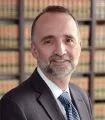Earlier this month, the Seventh Circuit in United States ex rel. Heath v. Wisconsin Bell Inc. awakened a decade-old False Claims Act (FCA) case in which the relator alleged that Wisconsin Bell, a telecommunications provider, charged schools and libraries more than was allowed under the federal Education Rate Program (the E-Rate Program). No. 2:08-cv-00724-LA, 2023 WL 4921534 (7th Cir. 2023). The decision is significant for a number of reasons, including that it is the first time the Seventh Circuit has weighed in on scienter post-Schutte. (The Supreme Court in Schutte, of course, rejected the Seventh Circuit's "objective reasonableness" scienter standard; read our analysis here.) Where Heath breaks entirely new ground, however, is on an issue to which the court devoted only a single paragraph: whether requests for reimbursement under the E-Rate Program are "claims" under the FCA. The Fifth Circuit previously held in United States ex rel. Shupe v. Cisco Systems Inc., 759 F.3d 379 (2014), that they are not; the Seventh Circuit has now held that they can be — but it ultimately is for the jury to decide.
The E-Rate Program subsidizes telecommunication services for schools and libraries in rural and economically disadvantaged areas and requires telecommunication providers to provide services at the lowest rate charged to similarly situated non-residential customers. This is known as the lowest-corresponding-price (LCP) rule. The E-Rate Program is funded exclusively by private telecommunications carriers through the Universal Service Fund (USF); it is not funded by government money. The USF is administered by a private corporation, the Universal Service Administrative Company (USAC). Like the telecommunications industry more broadly, USAC is regulated by the Federal Communications Commission (FCC).
The relator first filed suit in 2008, alleging that Wisconsin Bell violated the FCA by submitting and causing others to submit allegedly false reimbursement requests to USAC. The government declined to intervene. Wisconsin Bell moved to dismiss on the basis that the submissions were not "claims" under the FCA because they did not involve government funds or requests to government agents. DOJ submitted a statement of interest in support of the relator, arguing that the federal government "provides" the money for the E-Rate Program in the sense that Congress created the mechanism through which private parties pay funds into the USF. The district denied the motion to dismiss.
Wisconsin Bell later moved for summary judgment on other grounds, and the district court granted that motion in March 2022, finding that the relator failed to show a genuine dispute as to two of the primary elements of a FCA claim: falsity and scienter. United States ex rel. Heath v. Wisconsin Bell Inc., 593 F. Supp. 3d 855 (E.D. Wis. 2022). The Seventh Circuit now has reversed the district court's decision and remanded the case for trial.
With respect to falsity, the Seventh Circuit held that there was a genuine dispute as to whether Wisconsin Bell failed to charge schools and libraries the lowest rate charged to similarly situated non-residential customers and thus submitted false claims. The court highlighted what it viewed as evidence that Wisconsin Bell charged certain schools over two to three times more than a private business with similar characteristics relating to contract duration, location, size of entity, and distance from provider. The relator had not actually identified this evidence, leaving the Seventh Circuit to comb the record itself.
As for scienter, the district court's decision had relied on the pre-Schutte "objective reasonableness" standard. Applying the Supreme Court's new precedent, the Seventh Circuit found that there was enough evidence to establish a genuine dispute as to recklessness. The court first reasoned that, despite knowing of the LCP rule since its creation, Wisconsin Bell admitted that it had no procedures in place to assess whether the pricing of its products to schools and libraries complied with the E-Rate Program until 2009. The court further noted that Wisconsin Bell did not have a system for identifying similarly situated non-residential customers so it had no way of knowing the lowest price to offer. Finally, the court observed that, even after Wisconsin Bell implemented controls, evidence showed that schools and libraries were still overcharged compared to other non-residential customers that shared similar traits.
The Seventh Circuit devoted only a single paragraph to whether reimbursement requests under the E-Rate Program are "claims" within the meaning of the FCA. It reasoned that, based on DOJ's district court statement of interest "saying that the federal government does provide funds to the E-rate program," there was sufficient evidence from which a reasonable jury could "find that government funds were involved in the payments at issue." The Seventh Circuit did not identify what that evidence was or grapple with how a claim for payment from an entity funded entirely by private money meets the FCA's definition of "claim." Nor did it address the Fifth Circuit's decision in Shupe, which held as a matter of law that reimbursement requests to USAC did not meet the statutory definition of a "claim." On August 30, 2023, Wisconsin Bell filed a rehearing petition, arguing that the panel erred in holding that the E-Rate Program is subject to the FCA. (Full disclosure: Arnold & Porter filed an amicus brief yesterday on behalf of the U.S. Chamber of Commerce in support of rehearing.) Stay tuned to Qui Notes for further updates on this case.
The content of this article is intended to provide a general guide to the subject matter. Specialist advice should be sought about your specific circumstances.

